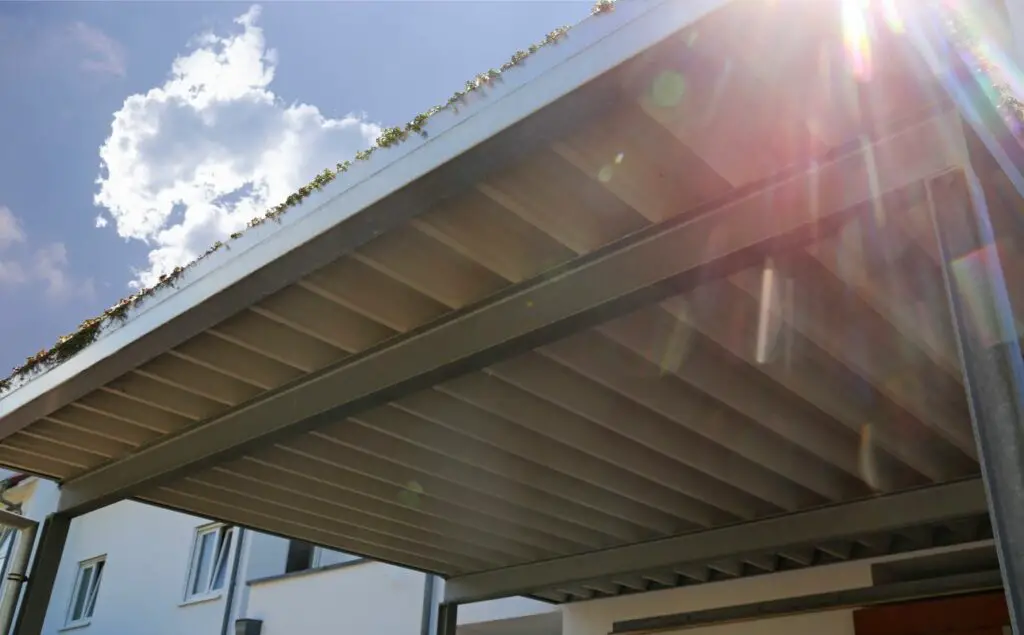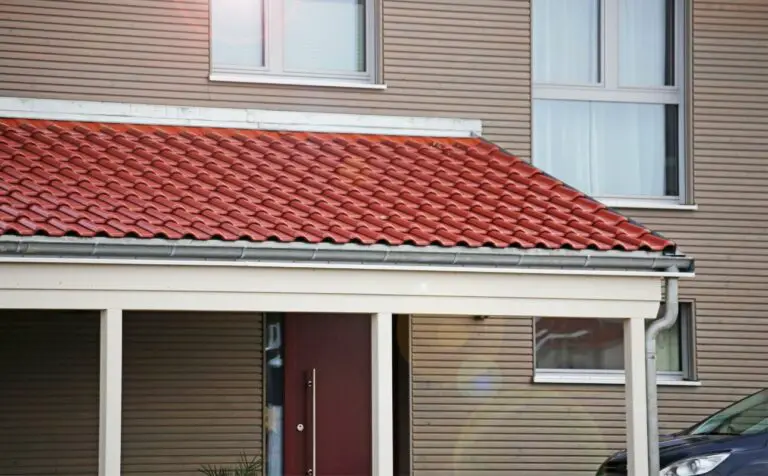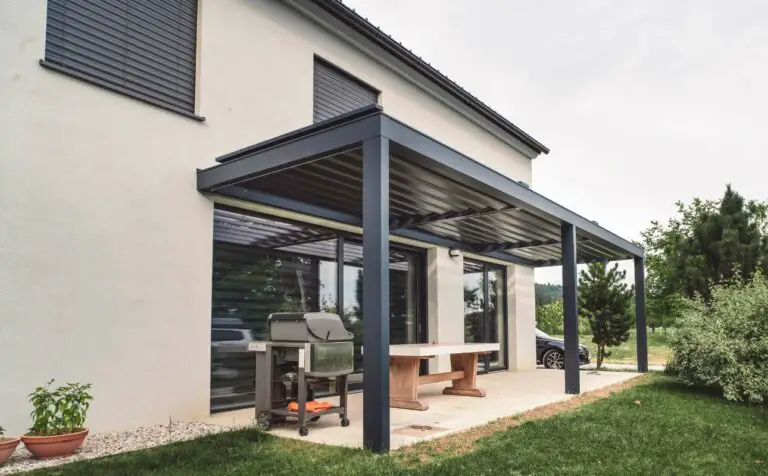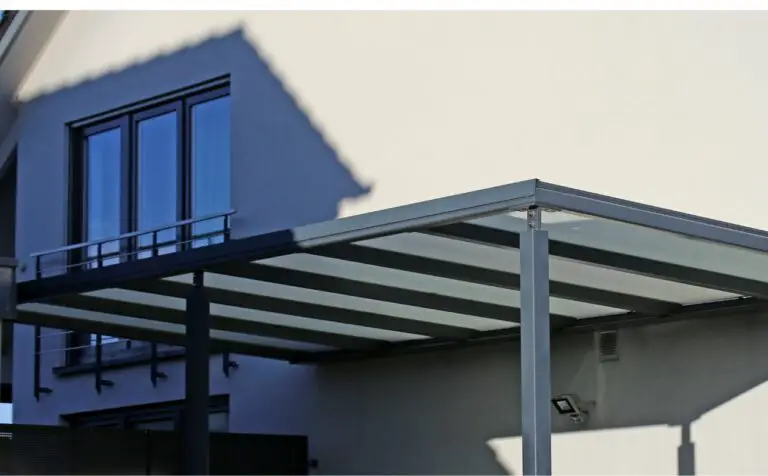A carport is a popular alternative to a traditional garage for providing shelter and protection to vehicles. However, there is often confusion as to whether or not carports are considered permanent structures. This question arises in the context of building codes, zoning regulations, and insurance policies.
In this article, we will explore the factors that determine if a carport is permanent and the implications of such classification. To begin with, it’s important to define what constitutes a permanent structure. Generally speaking, a permanent structure is one that is fixed to the ground or attached to another building with foundation walls or footings. Permanent structures typically require permits and inspections from local authorities before construction can commence.
On the other hand, temporary structures are those that can be easily assembled and disassembled without leaving any lasting impact on the surrounding environment. So where does a carport fit into these categories? Let’s find out.

Defining Permanent Structures
The definition of a permanent structure typically refers to any construction that is intended to remain in place for an extended period and is built with durable materials, such as concrete or steel.
Examples of permanent structures include buildings, bridges, dams, and other infrastructural projects that are designed to last for decades or even centuries. One of the primary advantages of permanent structures is their durability and resistance to environmental factors like wind, rain, and snow.
However, they also have some drawbacks, like high construction costs and limited flexibility in terms of design changes.
Factors that Determine if a Carport is Permanent
The size of a carport is one of the factors that determine its permanence. Generally, if a carport is large enough to accommodate more than two cars and has a concrete foundation, it is considered permanent.
The construction materials used and local zoning laws also play a significant role in determining whether or not a carport is permanent.
Size of the carport
In general, most jurisdictions have specific size limitations for structures to be considered permanent, and this applies to carports as well. For instance, some states may require a permit for any structure larger than 200 square feet.
It is worth noting that installation methods also play a role in determining whether or not a carport is permanent. If the carport is anchored to concrete footings or attached to an existing structure, it may be classified as a permanent structure.
On the other hand, if it is just placed on top of the ground without any anchoring mechanism, it might be classified as temporary. However, it’s important to note that even with proper installation methods and sizes under the required limits.
There are still instances when local regulations may classify them differently depending on factors such as zoning laws or building codes in different regions which underscores the significance of checking with local authorities before constructing one.
Construction materials used
Carports can be made from various materials, such as wood, metal, or vinyl. The installation process and quality of materials used differentiate temporary structures from permanent ones.
For example, wooden carports may require foundations and posts set into concrete to provide stability and permanence. Whereas metal carports are designed to be freestanding but can still anchor to the ground using stakes or bolts that ensure they remain in place.
Vinyl carports offer a more affordable option for those seeking temporary protection against the elements but lack durability compared to metal or wood structures.
Local zoning laws
Local zoning laws play a crucial role in regulating the construction and use of residential and commercial properties, which may affect the installation and placement of certain outdoor structures.
Zoning restrictions vary from one locality to another, but generally, they dictate what types of structures can be built on a property, where they can be located, how tall they can be, and what materials can be used.
In some areas, carports are considered permanent structures that require building permits and must meet specific legal requirements before installation. For instance, some localities may require that carports have foundations or footings to ensure stability and safety.
Building Permits and Regulations
Obtaining a permit for a carport is an essential step in ensuring compliance with local building codes. Carports are considered as permanent structures and, therefore, require permits in most municipalities.
Compliance with local building codes ensures the safety of occupants and preservation of property values.
Obtaining a permit for a carport
This process may require submitting plans and obtaining approval from local authorities before proceeding with installation. Cost considerations such as material selection, labor fees, and potential property value increases should also be taken into account when planning for a carport.
The installation process typically involves preparing the site, constructing the structure, and ensuring proper drainage. Compliance with local building codes ensures that safety standards are met and can prevent future legal issues.
Compliance with local building codes
Building code requirements for carports may vary depending on the location, but some common regulations include ensuring that the structure is anchored securely to prevent it from being blown away during heavy winds, using appropriate materials with adequate strength to support the weight of the roof and any potential snow or rainfall, and leaving sufficient clearance from property lines or neighboring buildings.
Additionally, complying with building codes may also add up to the carport installation costs due to additional inspections and permits required by local authorities.
Benefits of a Permanent Carport
Protection for vehicles is one of the main benefits of having a permanent carport. It shields cars from harsh weather conditions, such as extreme heat, rain, hail and snow, which can cause damage to the vehicle’s exterior and interior components over time.
A permanent carport provides an added layer of security against theft or vandalism compared to leaving your vehicle unprotected on the street or in a driveway.
Increased property value is another advantage of owning a permanent carport. In addition to providing protection for your vehicles, it also adds aesthetic appeal to your home’s exterior by serving as an extension of its design style.
Moreover, it serves as an attractive feature that potential buyers may consider when shopping for homes with added amenities like garages and covered parking spaces.
Protection for vehicles
The safety and security of vehicles can be enhanced through the use of various protective measures, including carports. These structures provide a sheltered space for vehicles to protect them from the elements, such as rain, snow, hail, and UV rays.
Furthermore, they can reduce the risk of damage caused by falling debris or tree branches during storms. Carports also offer an added layer of security against theft and vandalism since they provide a visible barrier between your vehicle and potential intruders.
Additionally, carport maintenance is relatively low compared to other types of permanent structures like garages. They are typically less expensive to install than garages and usually require less upkeep over time.
Increased property value
One factor that homeowners may find appealing about adding a carport to their property is the potential increase in its overall value. This is due to the added functionality and aesthetic appeal of having a covered parking space, which can make a home more attractive to potential buyers.
Carports are generally less expensive than building a traditional garage, making them an affordable way to add value to a property. However, it should be noted that while carports can boost property values, they may not be considered permanent structures in all cases.
Alternatives to Permanent Carports
Exploring alternative options for housing vehicles may offer more flexibility and cost-effective solutions in the long term. Portable carports are one such option that can be easily assembled and disassembled, making them a great choice for renters or those who frequently move.
These structures come in various sizes and designs, including metal or fabric options to suit specific needs. Additionally, covered parking spaces or parking sheds can provide a cheaper alternative to permanent carports while still offering protection from the elements.
Another option is to use pergolas or shade sails that provide partial coverage for vehicles while adding aesthetic value to the property.
The Bottom Line
The old adage “you get what you pay for” rings true when it comes to investing in a permanent carport. Though they may require more upfront costs than temporary or portable options, they offer greater durability and protection year-round.
Additionally, obtaining necessary building permits ensures compliance with local codes and adds value to your property in case of future resale. Those considering alternative options should weigh the short-term cost savings against potential long-term expenses and maintenance requirements.





